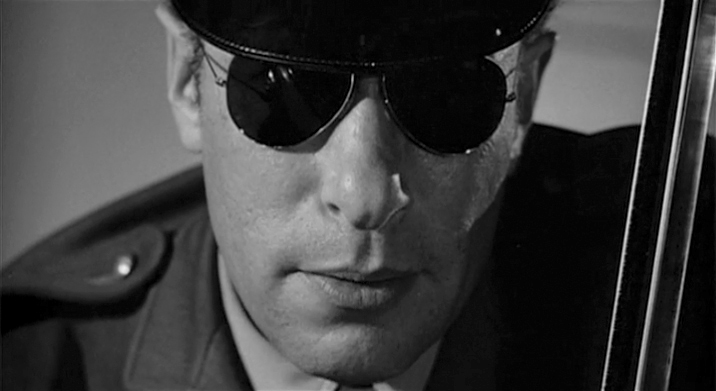True story: Last night I was driving to my book group at the Leonardtown (Maryland) Library, where I was to moderate a discussion on John Steinbeck’s The Pearl. Part of me was feeling desolate because it is such a sad story and part of me was concerned about the time. The drive to Leonardtown takes half an hour, and I had left my house with no time to spare. Then I passed a cop car.
Of course I checked my speedometer and was reassured that I was only going 45 in a 50 miles per hour zone. (I needn’t have worried: my 1986 Toyota pick-up doesn’t go much over 50.) Then I saw him pull out behind me and turn on his lights.
I figured it must be over a busted taillight and, sure enough, he said that a white light was showing through my left taillight. (I discovered later that, because my truck is so old, the red tint in the plastic had faded to white.) I handed him my driver’s license, proof of insurance, and what I thought was the current registration.
I anticipated a warning and couldn’t understand why the stop was taking so long, with the policeman talking on his radio and looking closely at the registration card. As the minutes ticked by and I kept refiguring my time, I turned to the book to make sure I’d gotten the details correct in the book’s harrowing chase scene. In it, the pearl diver and his wife and baby are fleeing with the magnificent pearl he has found, and one of the trackers chasing him mistakes his baby for a coyote and shoots him. Here’s what I was reading as the cop was writing my ticket:
Kino was in mid-leap when the gun crashed and the barrel-flash made a picture on his eyes. The great knife swing and crunched hollowly. It bit through neck and deep into chest, and Kino was a terrible machine now. He grasped the rifle even as he wrenched free his knife. His strength and his movement and his speed were a machine. He whirled and struck the head of the seated man like a melon. The third man scrabbled away like a crab, slipped into the pool, and then he began to climb frantically, to climb up the cliff where the water penciled down. His hands and feet threshed in the tangle of the wild grapevine, and he whimpered and gibbered as he tried to get up. But Kino had become as cold and deadly as steel. Deliberately he threw the lever of the rifle, and then he raised the gun and aimed deliberately and fired. He saw his enemy tumble backward into the pool, and Kino strode to the water. In the moonlight, he could see the frantic frightened eyes, and Kino aimed and fired between the eyes.
And then Kino stood uncertainly. Something was wrong, some signal was trying to get through to his brain. Tree frogs and cicadas were silent now. And then Kino’s brain cleared from its red concentration and he knew the sound—the keening, moaning, rising hysterical cry from the little cave in the side of the stone mountain, the cry of death.
In my reader response class I tell my students, when they are describing memorable reading experiences, to describe everything they can recall about the setting of the experience. But don’t worry: at this moment I wasn’t imagining myself as Kino wreaking revenge on the policeman who had tracked me. It was more that I was Kino standing uncertainly. Nothing about this episode was making sense.
When the cop finally came back thirty minutes later, he explained that I had given him an out-of-date registration, which is why he had taken so long. He said I couldn’t give him the current one because the other one was already in the system but that the judge would understand if I appealed the $50 fine. I asked him, somewhat pointedly, if he would call the Leonardtown Library to tell them I would be late. He said he couldn’t do that but, as a favor, he gave me their number so that I could do so.
As I would show up with only 15 minutes or so left, I told them that I was just going home and would see them next month.
Looking back at the episode, part of me wonders whether I somehow triggered the incident by the funk I was in over the novel. It’s one of Seinbeck’s many “paradise lost” stories—a hard but idyllic life shattered by human greed and corruption—so I was fully feeling the tragedy of how discovering the pearl twists the innocent fisherman. I was not at peace and, who knows, maybe the cop sensed this at some deep level.
Or maybe he just saw a white taillight. In any event, next month we’re discussing Zora Neale Hurston’s Their Eyes Were Watching God so I’ll be careful on that day to steer clear of all dogs. If there are any rabid ones out there, they’ll be sure to find me.\


